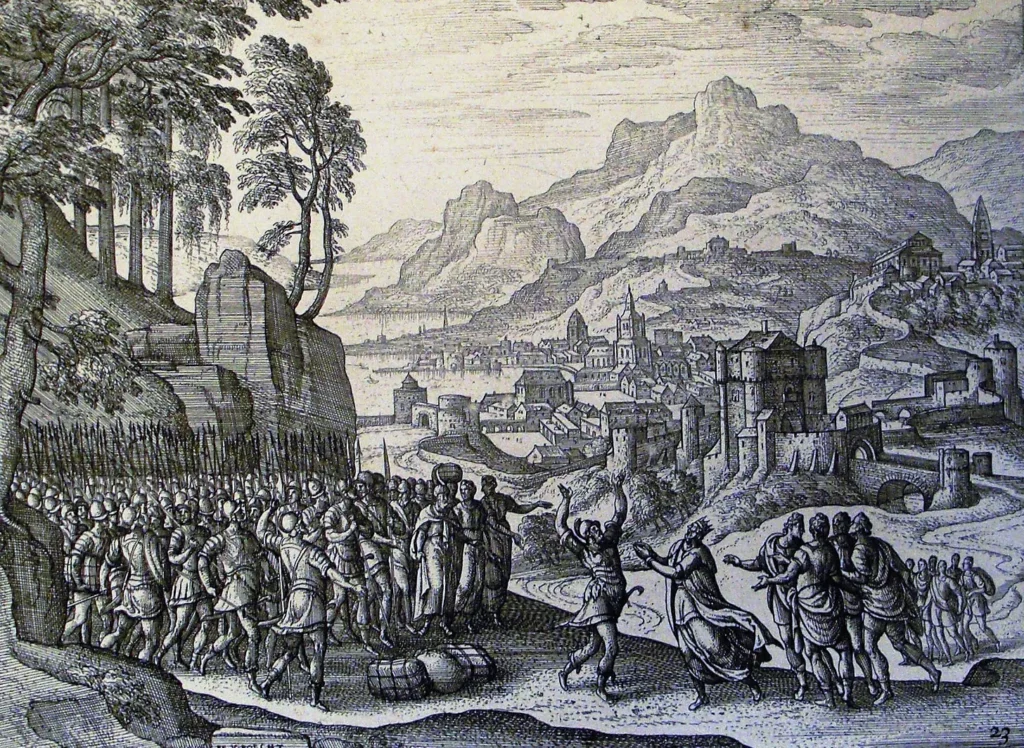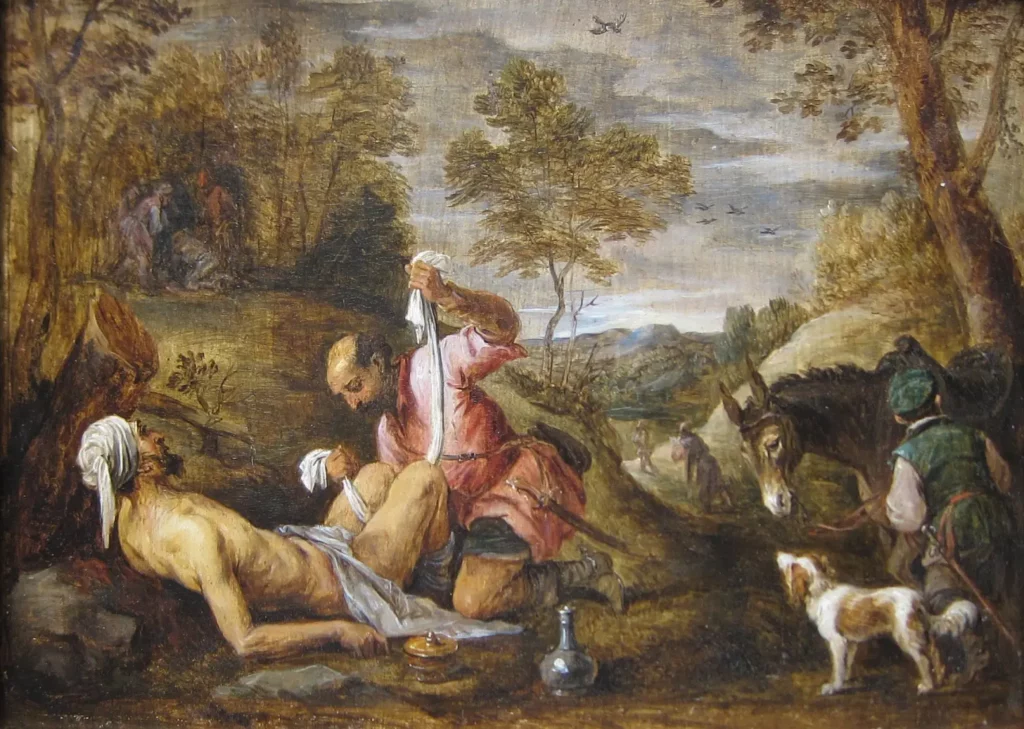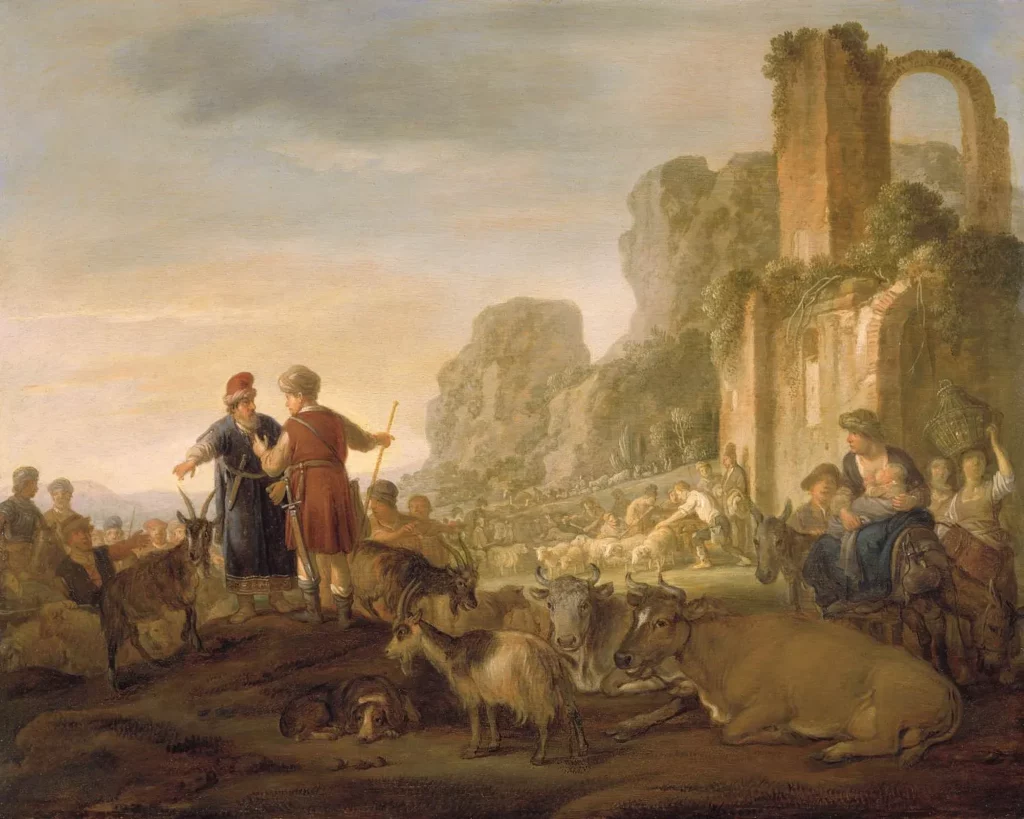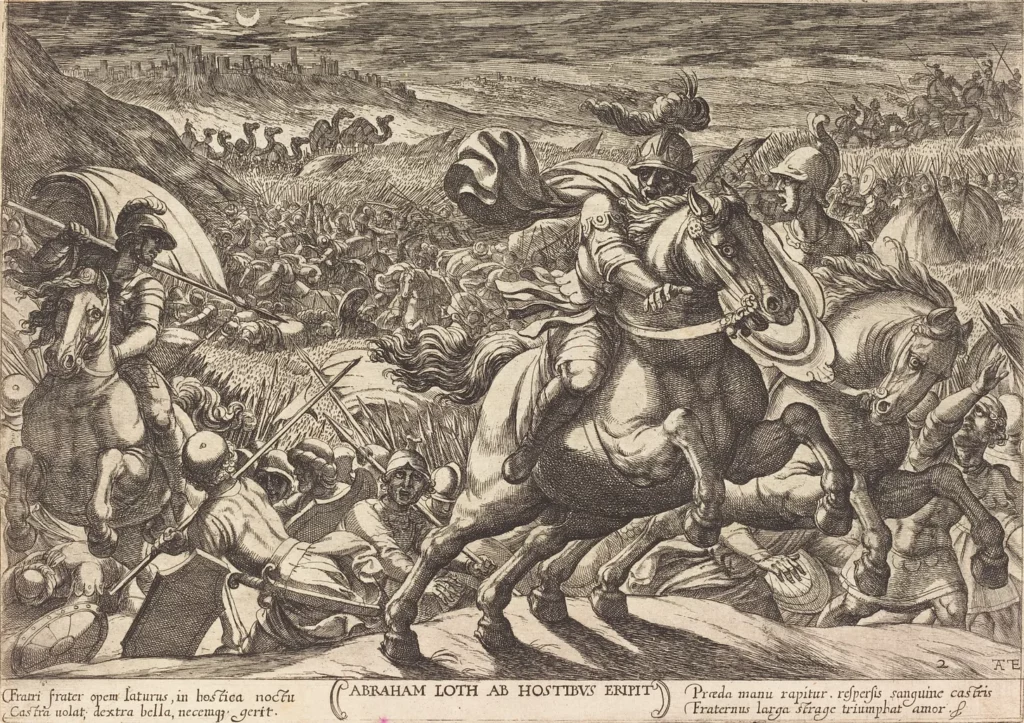In part one of this series, we established how the working relationship between Abraham and his nephew, Lot, ended due to a conflict between their herdsmen arguing over increasingly scarce grazing land. The passage is clear that whatever differences their workers had, it did not affect Abraham’s genuine affection, concern for, and commitment toward his nephew. Abraham was willing to lay down his rights as the older family member and jeopardize his life and livelihood to act in Lot’s best interest.
It wouldn’t be the last time.
A short time later, war broke out between nine nearby kingdoms, including Sodom. Due to his proximity to Sodom, Lot went to fight alongside its king, and both wound up on the losing side. The victors divided the spoil, took prisoners, and went on their way. Abraham caught wind of the battle from one of the men who escaped and responded with what very could have been the inspiration for Liam Niessen’s character in ‘Taken’:
He looks for those responsible for taking his nephew, finds them, and kills them, rescuing both Lot, the rest of the defeated kings, and their armies.
In the aftermath, the question arises of how to divide the spoils of war.
As Abraham returns to speak to the recently freed kings, he is approached by Melchezidek, the priest of Yahweh (the God Abraham served) and king of Salem (which would later become Jerusalem). Melchizedek, whose name means “My King is Righteousness,” brings out bread and wine to celebrate righteous Abraham’s victory and declares over him,
“Blessed be Abram by God Most High,
Genesis 14:19-20, ESV
Possessor of heaven and earth;
and blessed be God Most High,
who has delivered your enemies into your hand!“
In addressing victorious Abraham, Melchizedek reminds him of two core realities relating to the battle he had just won and the spoils that he had secured as a result:
- The God that he served was the rightful owner of heaven and earth
- His shocking victory was another example of God’s gracious hand of provision in his life.
Before anyone else can express an opinion, Abraham makes an executive decision demonstrating his agreement with Melchezidek’s evaluation of his success in battle: he offers him 10% of the spoils of war (what we would call “tithing”).
But what about the other 90% percent?
The rescued king of Sodom tells Abraham,
Give me the persons (the prisoners) but take the goods for yourself.”
Genesis 14:21, ESV
On the surface, this seems completely kosher (pun intended); Abraham had risked his own life, and the lives of all his militarily trained men to rescue Lot and the other kings and was entitled to the spoils. On top of that, as mentioned previously, the city of Sodom was renowned for its monstrous evil. The infamous story given to illustrate their depravity features a group of men from Sodom attempting to sexually assault weary travelers welcomed under Lot’s roof. In a culture similar to the Pashtunwali code that motivated an Afghan villager to risk his life to save Marcus “Lone Survivor” Luttrell, Lot was willing to take extreme measures to preserve the lives of his guests. Still, the line the men of Sodom crossed that day would prove to be the final straw as far as God was concerned.
Being a righteous man, Abraham had the moral high ground. There’s a convincing argument to be made that Abraham was morally obliged to take the riches he had won. If he didn’t take them, the king of Sodom would, and his oppressive nation would have more resources to continue further cruelty.
Despite numerous justifications for claiming the treasure, Abraham refuses to take any of them.
His reasoning?
“I have lifted my hand to the Lord, God Most High, Possessor of heaven and earth, that I would not take a thread or a sandal strap or anything that is yours, lest you should say, ‘I have made Abram rich.'” – Genesis 14:22-23
Why didn’t Abraham take the spoils of war?
He gives two reasons. We’ll unpack the first below and the second in part three of this series.
First, in addressing the king of Sodom, Abraham repeats the description used by Melchizedek to describe God: “possessor of heaven and earth.” By implication, this means that God owns not only heaven and earth but also everything in them. It’s a faithful (if not subtle) reminder to a lawless leader that God is the ultimate owner of both the spoils of war and everything else that Abraham, the king, and everyone else in the world possessed.
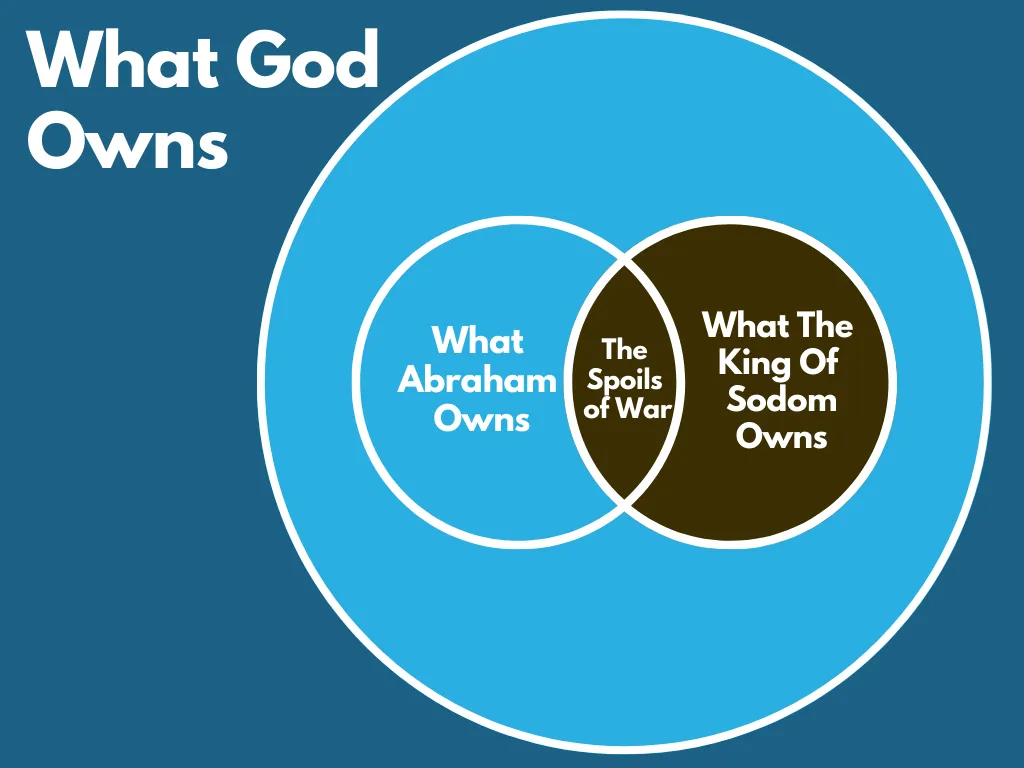
This wouldn’t be the last time that a Godly leader would remind a wicked one that every ounce of the authority and wealth he possessed was given from above.
God committed to providing for Abraham’s needs and had proven himself faithful. Abraham left his home, his family, and everything familiar to go to a land God promised to give to him. In response, God had both enriched and strengthened him to the point that Abraham’s private army was more potent than the combined armies of nine surrounding nations.
God’s faithfulness to provide for Abraham’s needs gave him the confidence and security needed to refuse to bend down and pick up the king of Sodom’s nickels.
The Apostle Paul might as well have been speaking of Abraham when he said,
But godly character with contentment is great gain, for we brought nothing into the world, and we cannot take anything out of the world. But if we have food and clothing, with these, we will be content. But those who desire to be rich fall into temptation, into a snare, into many senseless and harmful desires that plunge people into ruin and destruction. For the love of money is a root of all kinds of evils. It is through this craving that some have wandered away from the faith and pierced themselves with many pangs.
1 Timothy 6:6-10
Abraham had riches, but his riches didn’t have him. He was wealthy, but he didn’t desire to be rich. Abraham was faithful to be and do who and what God asked him to do and be, and riches followed suit. They were a gracious byproduct, not a prime product. This passage should not be considered a prophetic prescription for wealth accumulation. That it is not. But Abraham’s pursuit of obedience to God’s will and purpose brought secondary and tertiary benefits. He was content with what God had given him, which allowed him to avoid the desires that could have brought him to ruin.
Abraham patiently sought God’s kingdom first, and many things were added to him. Many American Christians are hyper-sensitive about the relationship between obedience to God and monetary blessing due to the heretical overemphasis on money from “pastors” such as Creflo Dollar (yes, that’s his real name) and Kenneth Copeland.
While this is understandable, it is a mistake to feel squeamish about affirming a normative relationship between sowing and reaping, which the apostle Paul describes as being so fundamental to the nature and operation of the world that to deny it is tantamount to mocking God.
In part three of this series, we will move on to the second reason that Abraham refused to accept the seemingly generous offer from the hand of the king whose life he had rescued and find some surprising wisdom for ourselves in the process.


